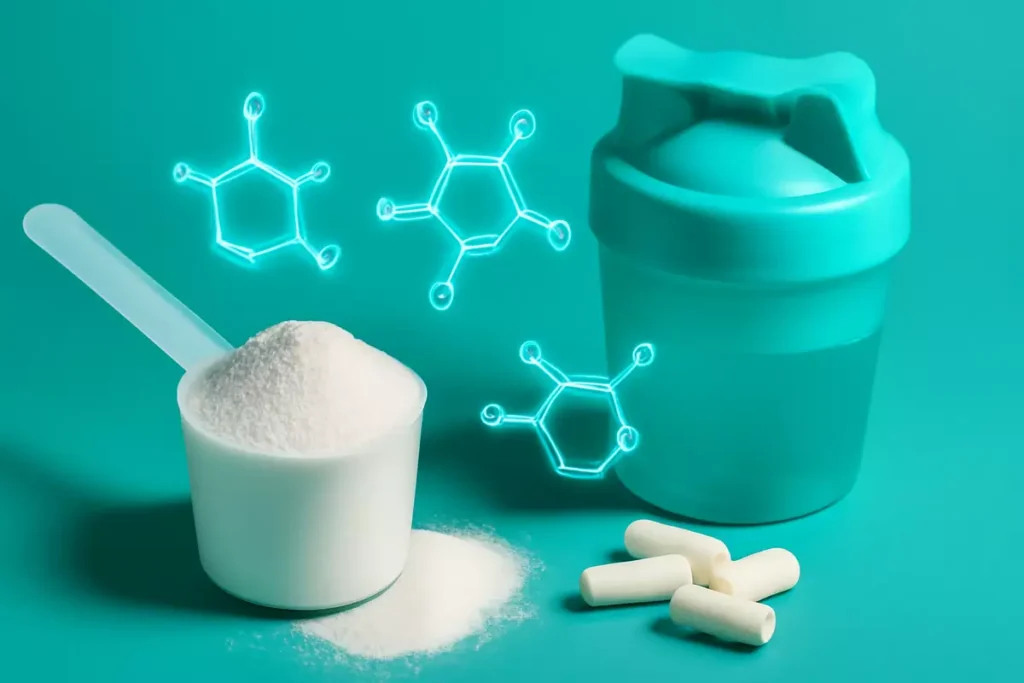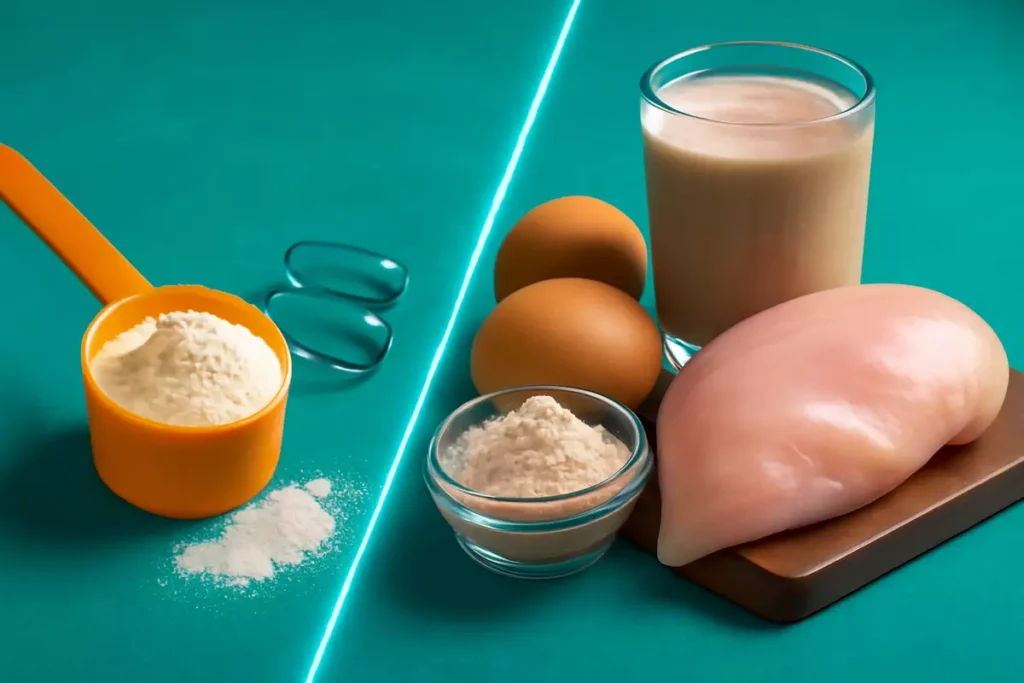Tough workouts push your limits—but recovery is where real progress happens. If sore muscles slow you down, BCAAs may be the missing link.
These essential amino acids help speed up repair, reduce soreness, and keep your energy up after intense training.
Let’s dive into how BCAAs support post-workout recovery and when they work best for athletes and everyday lifters.
Table of contents
Quick Answer
If you’ve ever finished a tough workout and dreaded the soreness that follows, you’ve probably wondered how to speed up recovery.
BCAAs (branched-chain amino acids) can play a big role here. They help reduce muscle breakdown, lower soreness, and give your body the raw materials it needs to repair faster.
From my own training and coaching experience, BCAAs are not a miracle, but in the right situations they make a noticeable difference.
What Are BCAAs?

BCAAs are three essential amino acids—leucine, isoleucine, and valine.
Your body can’t make them on its own, so you must get them from food or supplements. Leucine, in particular, is key for triggering muscle protein synthesis, the process that helps your muscles repair and grow stronger after training.
If you’re curious about how BCAAs compare to other supplements or whether they’re worth the investment, I recommend checking this guide: Do BCAAs Really Work or Waste?
How BCAAs Support Post-Workout Recovery
The main way BCAAs support recovery is by boosting muscle protein synthesis and reducing muscle breakdown.
They also help decrease DOMS (delayed onset muscle soreness), the soreness you feel a day or two after training.
From my own training, I’ve noticed a difference after heavy leg days. Normally, squats leave me sore for three days, but with BCAAs right after training, I recover faster—usually in about two.
Clients have shared similar experiences. For example, Maya from Canada, a vegan lifter, struggled with soreness after HIIT workouts. Once she added BCAAs post-workout, she said the soreness was much easier to manage, allowing her to train more consistently.
You can also see the expected timeline of recovery benefits here: BCAA Results Timeline.
When and How to Take BCAAs

The best time to take BCAAs for recovery is immediately after your workout.
Some athletes also sip them during long or high-intensity sessions to maintain energy and reduce fatigue. In fact, BCAAs can improve hydration in tough sessions—see this detailed breakdown: BCAAs and Hydration During Long Workouts.
From my own experience, post-workout use feels most effective. On long circuit days, I’ve sipped them during training and felt less drained, but right after training is when they shine for recovery.
Dosage tip
Most studies suggest 5–10 grams around your workout window is enough for recovery support.
If you’re wondering about frequency, here’s a guide on whether you can Take BCAAs Multiple Times a Day.
Who Benefits Most from BCAAs
Not everyone needs BCAAs, but certain groups see the most value:
- Athletes in calorie deficit: Diego from Spain used BCAAs while cutting and noticed he kept his strength better compared to his previous diet without them.
- Vegan and vegetarian athletes: Plant-based diets sometimes lack enough leucine, and clients like Maya saw faster recovery with BCAAs. Read more here: BCAA Benefits for Vegan Athletes.
- High-intensity lifters: Kenji from Japan was cutting for a photoshoot and told me BCAAs helped him maintain muscle during aggressive training.
BCAAs vs. Whole Protein Sources

Here’s the truth: BCAAs are not a replacement for complete protein sources.
Whey protein, eggs, meat, or legumes provide the full amino acid profile your body needs for optimal recovery.
I’ve personally tested both. When I compared whey protein to BCAAs, whey always gave me a more noticeable boost in recovery and growth.
But on days when I couldn’t eat right away—like traveling after a workout—having BCAAs in my bag saved me from that “flat” feeling until I could grab real food.
For beginners looking to try supplements, here’s a guide I trust: Best BCAA Supplements for Beginners.
Trainer’s Takeaway: Practical Tips
Here’s my honest advice:
- Use BCAAs strategically. They’re most helpful if you’re training hard while in a calorie deficit, eating plant-based, or stuck in situations where you can’t get protein right away.
- Don’t waste money thinking they’re a magic bullet. Early in my journey, I overspent on them. Some clients, like Elena from Italy, told me they noticed no difference at all. That taught me BCAAs are more of a supportive tool than a must-have.
- Focus on hitting your daily protein intake first, then consider BCAAs as an extra boost if your situation calls for it.
If you prefer caffeine-free recovery options, this guide may help: BCAAs Without Caffeine.
Final word from me as a coach: BCAAs can support post-workout recovery, but they’re not essential for everyone.
If you’re already consistent with protein and nutrition, you may not need them. But if you fall into one of the groups above, they can absolutely help you recover faster and train harder with less soreness.



Leave a Reply